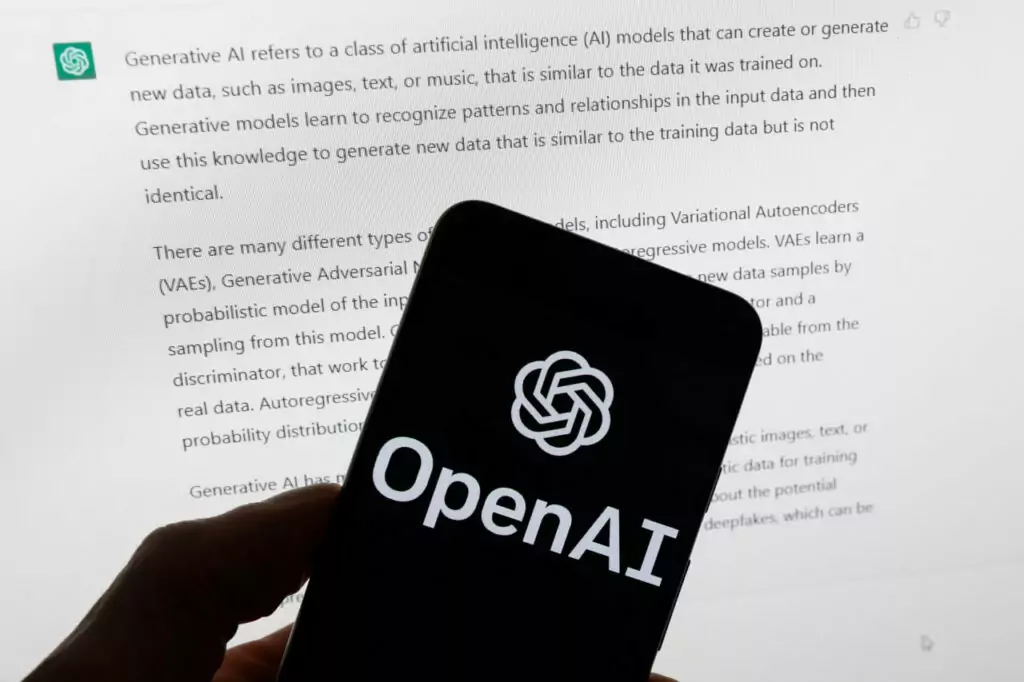Several renowned authors including George R.R. Martin and John Grisham have filed a lawsuit against OpenAI, claiming the company has infringed on their copyrights by utilizing their works to train the ChatGPT program, potentially impacting the livelihoods of tens of thousands of writers.

✅ AI Essay Writer ✅ AI Detector ✅ Plagchecker ✅ Paraphraser
✅ Summarizer ✅ Citation Generator
Key Takeaways:
- Prominent authors have sued OpenAI for alleged unauthorized use of their works in training ChatGPT, seeking up to $150,000 in damages per work.
- The lawsuit underscores prevailing uncertainties about AI and intellectual property rights and emphasizes authors’ lost control and moral rights.
- OpenAI is actively discussing with authors and the Authors Guild to resolve concerns and find mutually agreeable solutions regarding AI and intellectual property rights.
Writers Seek Justice
Prominent writers, among them George R.R. Martin and John Grisham, have initiated legal action against OpenAI. They have accused the tech giant of copyright infringement, asserting that their written works have been used without permission to train OpenAI’s artificial intelligence tool, ChatGPT. This case, filed in the Southern District of New York, has been supported by the Authors Guild and involves 17 celebrated authors including Jodi Picoult, David Baldacci, and George Saunders.
The contention is that OpenAI, in developing ChatGPT, which can answer questions and generate text resembling human response, incorporated their literary works into its training data without permission or compensation. The authors claim that this unauthorized use of their works is not only a violation of their copyrights but is also a form of “systematic theft on a mass scale.”
This lawsuit represents a significant hurdle for OpenAI as it navigates the legal landscape surrounding the collection and utilization of data for creating algorithms like ChatGPT. It also highlights the looming questions about AI and copyrights, as there is no specific legislation dealing with AI-related issues as of now.
The plaintiffs allege that OpenAI’s actions have made them “unwilling accomplices in their own replacement” and that the AI’s algorithms are integral to the defendant’s extensive commercial venture. They argue that the authors’ livelihoods are seriously threatened as ChatGPT and the large language models (LLMs) are being used to generate content such as low-quality eBooks and impersonate authors, diminishing the value and uniqueness of human-authored books.
For instance, the lawsuit points out that a programmer named Liam Swayne has exploited ChatGPT to create sequels to George R.R. Martin’s “A Song of Ice and Fire” series. The suit highlights the accuracy of ChatGPT in generating summaries of several of Martin’s works and notes that such results could only have been achieved if OpenAI’s LLMs had been trained using Martin’s works.

The authors are firm in their pursuit to stop OpenAI from using copyrighted works without explicit authorization and are seeking damages up to $150,000 per infringed work. They believe that it is crucial for creators to have control and benefits over their creations and see this legal action as a step towards protecting the rights and livelihoods of authors globally.
OpenAI has responded by expressing respect for the rights of writers and authors and asserting its belief that they should benefit from AI technology. The company states that it is in ongoing discussions with various creators, including the Authors Guild, and is optimistic about finding cooperative and mutually beneficial solutions addressing concerns about AI.
George Saunders remarked:
“Our works are a result of our hard work and imagination, and it is our right to control how they are used. The alleged unauthorized use by OpenAI not only diminishes our control but also affects our moral rights as creators.”
In a statement, an OpenAI spokesperson conveyed:
“We’re having productive conversations with many creators around the world. We’re optimistic we will continue to find mutually beneficial ways to work together to help people utilize new technology in a rich content ecosystem.”
This lawsuit thus symbolizes a collective endeavor by writers to uphold their rights in the evolving domain of artificial intelligence. It is a significant step in the discourse about intellectual property rights in the age of AI and is likely to set a precedent for how AI companies interact with creative content in the future.
Follow us on Reddit for more insights and updates.





Comments (0)
Welcome to A*Help comments!
We’re all about debate and discussion at A*Help.
We value the diverse opinions of users, so you may find points of view that you don’t agree with. And that’s cool. However, there are certain things we’re not OK with: attempts to manipulate our data in any way, for example, or the posting of discriminative, offensive, hateful, or disparaging material.